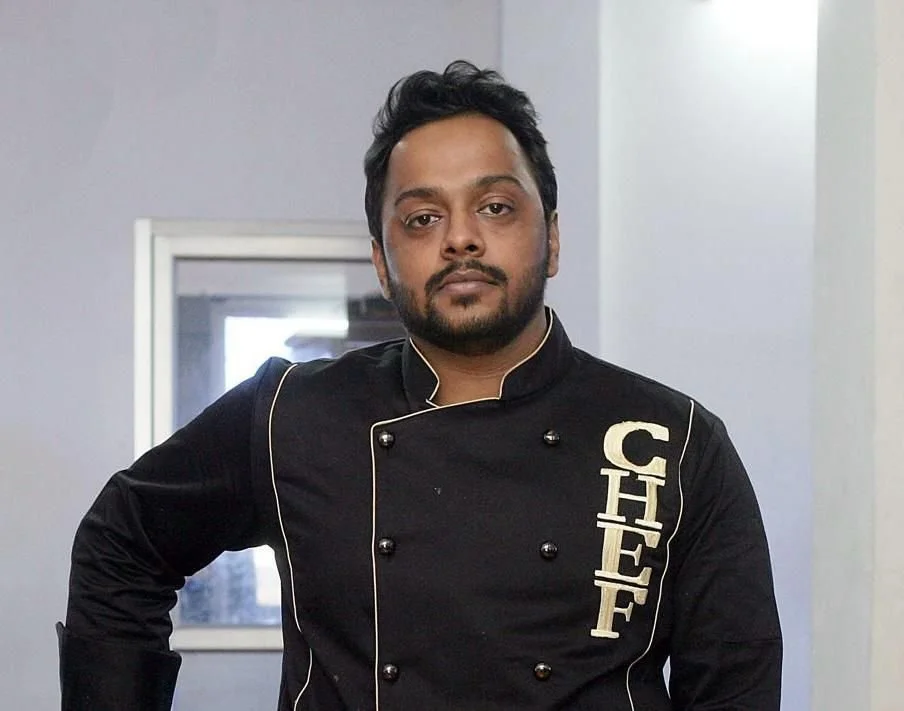How did it all start? Share your culinary journey with us
Watching a baker in action can lead one to perceive baking as an art form, with the baker as the artist who combines a variety of flavors, textures, and aesthetics to create edible masterpieces.
An art form, yes, but according to Chef Playton Dias, who is a faculty at the Goa-based Kamaxi College of Culinary Arts (KCCA) Bakery & Pastry section and the person in-charge of shaping the careers of young bakers for the future, to become a good baker, one needs to know a little bit about number crunching too.
What are your earliest memories of the kitchens you worked in
He smiles as he recalls how he lived to relish his childhood dreams of becoming a chef on a cruise ship.
“I had big dreams as a child. I always imagined myself working on a cruise ship,” says Dias who hails from Rivona village, a tiny, but picturesque hamlet in South Goa.
After completing his studies and plying his trade as a chef at various starred hotels in Goa, Chef Dias embarked on a journey aboard on one of the many luxurious cruise liners operated by Princess Cruises, sailing along the US coastline and living his childhood fantasy to the fullest.
His drive to reach the top is what enabled him to persevere in the face of adversity. There have been good times too, as he was able to travel to multiple countries and forge friendships across the globe.
Name chefs, you find amazing or chefs’ work you admire
He holds great respect for Chef Andrej Brzeskot, a noted Corporate Pastry Chef. He spent a significant amount of time working as an Executive Pastry Bakery Chef with Chef Brzeskot at Princess Cruises. As a mentor, Chef Brzeskot has earned his admiration due to his work ethic and willingness to impart his knowledge to colleagues. He has gained valuable insights from Chef Brzeskot, particularly in areas such as chocolate art, entremets, and flavor matching.
Your favorite ingredient is…
Dias states that his preferred ingredient is dark chocolate. He explains that dark chocolate has a more intricate flavor profile than milk chocolate due to its lower sugar content, which can improve the taste of baked goods.
Dias believes that maintaining a healthy relationship with food is crucial for one's overall well-being, and dark chocolate can be a part of that balanced approach. Moreover, consuming dark chocolate has been associated with decreased stress levels and enhanced brain function. It's essential to remember that indulging in a chocolate treat should not lead to feelings of guilt or stress, and maintaining a positive and balanced attitude is key to a healthy relationship with food.
After several years of sailing the seas, Chef Dias decided to return to Goa and spend his days imparting knowledge to youngsters wanting to make a career in the global culinary industry at the KCCA.
“Teaching skills and techniques to the students here at KCCA gives me immense satisfaction. I see myself in these young students as they work towards learning the skills which will make them leading chefs of tomorrow, " says Chef Dias.
What according to you does it take to become a successful chef?
He went on to talk about the four essential skills that a baker needs to adapt to for a successful career, which are patience, organizational skills, stress management, and the use of mathematics. "It may be surprising that I mentioned maths!', he says and quickly adds, "The use of maths and fraction conversion helps immensely while measuring ingredients."
Referencing his time as a pastry chef on a luxury cruise liner, Chef Playton stresses the importance of adaptability in this industry.
There are several difficulties one could run into in the kitchen on a ship, he says and there is always a need to work around challenging circumstances and come up with adequate solutions.
“Being a baker can be rewarding, but it also requires a lot of effort, making problem-solving abilities crucial,” Dias says.
What books should every chef read?
Cookbooks are a valuable source of knowledge that contains diverse information on ingredients, techniques, and ways to combine flavors. They also provide an understanding of the cultural and historical importance of different cuisines, making them a valuable resource for budding chefs. By learning from the experiences of successful chefs, young aspirants can enhance their craft and gain a deeper understanding. Chef Playton recommends several books, including all the editions of 'Professional Baking’ by Wayne Gisslen, ‘The Professional Pastry Chef’ by Bo Friberg, and ‘Making Dough’ by Russell van Kraayenburg, to help budding chefs improve their skills.
Keeping himself updated with the latest baking trends has helped Chef Playton to keep abreast of the ever-evolving food industry. There is always a demand for chefs, especially bakery chefs. Many are also venturing into starting their own entrepreneurial ventures and skilled chefs are the need of the hour.
What advice would you give to a young culinary student?
Dias urges his students to "learn with zeal and push their limits.”. He advises young talent to make notes about all the tricks they learn along the way which will come in handy in the future, perhaps when they jot down their own book of recipes.
"Avoid the use of machines as much as possible as it will allow one to learn and perfect the handcrafting of all products. Finally, every little recipe you put together deserves to have its own place in your personal recipe book,” he says.














